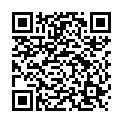|
|
|
| Module code: MAS-20-V1 |
|
|
- |
|
25 |
| Semester: 3 |
| Mandatory course: yes |
Language of instruction:
German |
Assessment:
Master’s thesis
[updated 14.06.2021]
|
Exam recurrence:
The information regarding exam recurrence is found within the exam policy of the study programme (ASPO).
|
MAS-20-V1 (T322-0195, T322-0196) Social Work, Master, ASPO 01.10.2020
, semester 3, mandatory course
MAS-20-V1 (T322-0195, T322-0196) Social Work, Master, SO 01.10.2023
, semester 3, mandatory course
|
|
The total student study time for this course is 625 hours.
|
Recommended prerequisites (modules):
MAS-20-I1 Transitions in the Course of Life: Lives, Biographies, and Coping with Life in the Face of Social Change
MAS-20-I2 Life Situations, Social Inequalities and Social Cohesion: Social and Educational Regulation
MAS-20-I3 Migration, Diversity and Interculturality: Socio-Educational and Structural Concepts in Migration Society
MAS-20-II1 Empirical Social Research: Principles and Perspectives with Tutorial
MAS-20-II2 Advanced Qualitative Research, Evaluation Methods with Research Workshop
MAS-20-II3 Advanced Quantitative Research, Evaluation Methods with Research Workshop
MAS-20-III1 Methods of Action: Recent Developments and In-Depth Studies Based on Examples
MAS-20-III2 Case Analysis
MAS-20-III3 Governance of Social Services: Managing and Networking Social-Professional Organizations and Civil Society Processes
MAS-20-III4 Digitization and Aesthetic Education
MAS-20-IV Compulsory Elective Seminar
[updated 30.10.2023]
|
Recommended as prerequisite for:
|
Module coordinator:
Studienleitung |
Lecturer: Studienleitung
[updated 05.08.2020]
|
Learning outcomes:
After successfully completing this module, students will be able to:
complete an empirical research paper in an independent manner within a specified time period.
[updated 14.06.2021]
|
Module content:
Students will write their masterís thesis.
[updated 14.06.2021]
|
Recommended or required reading:
Esselborn-Krumbiegel, Helga (2017): Von der Idee zum Text: eine Anleitung zum wissenschaftlichen Schreiben. 5., aktualisierte Auflage. Paderborn: Ferdinand Schöningh. UTB
[updated 14.06.2021]
|


